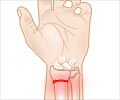A new study has revealed that a compound from honeybees may protect against heat stress in athletes.
A new study has revealed that a compound from honeybees may protect against heat stress in athletes.
According to the study, published by the Institute of Food Technologists, propolis, the substance bees use to seal their hives, could protect against heat stress in sportsmen.Honeybee propolis, or bee glue, has been widely used as a folk medicine.
An active ingredient in propolis known as caffeic acid phenethyl ester, or CAPE, has a broad spectrum of biological activities including antioxidant, anti-inflammatory and antiviral.
Hyperthermia, or heat stress, is considered to be the main factor underlying the early fatigue and dehydration seen during prolonged exercise in the heat.
"Since hyperthermia and free radical generation are related to exercise-induced physical damage, it is reasonable to test whether an antioxidant can prevent or reduce hyperthermia-induced free radical generation and damage," says lead researcher Yu-Jen Chen of Chinese Culture University in Taiwan.
To reach the conclusion, researchers examined blood from 30 competitive cyclists who engaged in endurance training for two to four years prior to the investigation.
"CAPE rescued mononuclear cells from hyperthermia-induced cell death," writes Yu-Jen Chen.
Source-ANI
RAS
 MEDINDIA
MEDINDIA




 Email
Email






